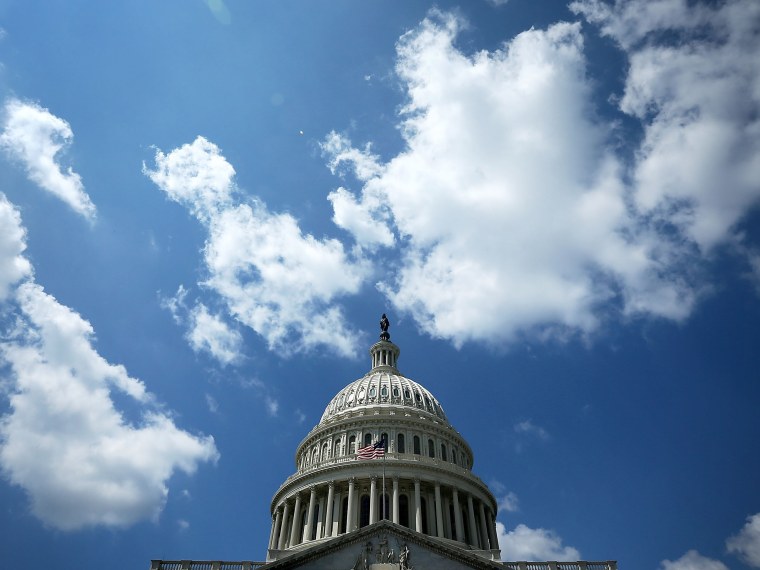The deadline for the next government shutdown is tomorrow night, but Senate leaders from both parties have reached an agreement on a spending package that will take the threat off the table for a while.
The measure, negotiated between Senate Majority Leader Mitch McConnell and Senate Democratic Leader Chuck Schumer, increases domestic spending by $63 billion and military spending by $80 billion for 2018 with larger increases in 2019. The spending levels completely eliminate the mandatory spending caps, otherwise known as sequestration, that have been imposed on both military and domestic spending since 2011. [...]In addition to determining spending levels, it would provide additional funds for disaster relief for wildfires and hurricanes. It would also extend the low-income children's health program for ten years instead of six, which was passed just last month. It would provide $6 billion for opioid treatment and $20 billion for infrastructure.
When all is said and done, it looks like this agreement will increase spending by about $400 billion.
At face value, the agreement is a reminder that in order to strike bipartisan deals in the Trump era, it's important to ignore Donald Trump. In this case, the president yesterday threatened a shutdown, which had no apparent impact on the Senate talks because McConnell and Schumer acted as if Trump were irrelevant.
But what's truly amazing about the Senate deal is its total abandonment of Republican orthodoxy. Throughout the Obama era, GOP officials had one overarching priority in every budget fight: austerity.
Between 2009 and 2016, Republicans said they wanted a balanced budget. They said the national debt was an existential threat to the United States. They said any additional government spending had to be offset by cuts elsewhere. They said, in John Boehner's famous phrasing, that our country "is broke" and therefore incapable of making any new investments, regardless of public needs.
This approach not only caused routine GOP-imposed crises throughout Barack Obama's presidency, it also held back the nation's economy -- deliberately, since that's largely the point of austerity.
The rot of bad faith from those arguments has been exposed.
Indeed, the party that likes to pretend it cares about fiscal responsibility has now thrown caution to the wind. $1.5 trillion in tax cuts? Sure. Increase the deficit? No problem. Hundreds of billions of dollars in new spending? Absolutely. Should Congress try to offset the costs? Don't bother. Those spending caps from the 2011 sequester? Gone.
In effect, Schumer and McConnell struck a deal, not by making tough choices, but by agreeing to ignore tough choices. The Republican leader effectively said, "I want more defense spending," to which the Democratic leader replied, "I want more domestic spending."
They reached an agreement by telling one another, "Let's do both."
Everything in this budget deal is the opposite of the Republicans' Obama-era posture. The cynicism is almost comical: the larger the deficit gets, the more GOP leaders decide they no longer care.
The plan appears very likely to pass the Senate, at which point it will go back to the House. If conservatives in the lower chamber balk -- a distinct possibility -- GOP leaders will likely have to turn to Democrats to help pass the spending package. House Minority Leader Nancy Pelosi (D-Calif.) has spent the day saying she's willing to provide those votes, just so long as House Speaker Paul Ryan (R-Wis.) commits to a floor vote on a bipartisan immigration measure.
Watch this space.
